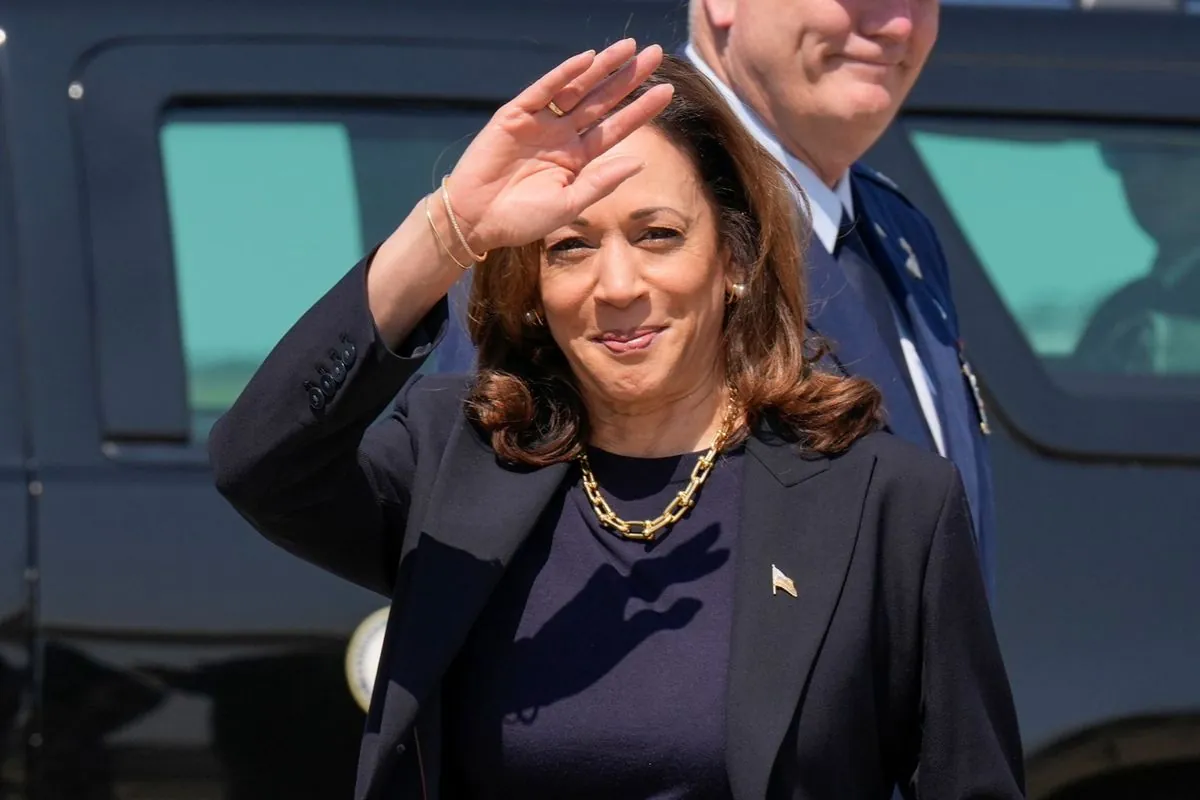Vice President Kamala Harris is adjusting her schedule to prioritize the federal response to Hurricane Helene, a severe storm that has impacted the southeastern United States. The Vice President, who was initially on a campaign trip in Las Vegas, Nevada, is returning to Washington D.C. earlier than planned to participate in briefings at the Federal Emergency Management Agency (FEMA) headquarters on September 30, 2024.
This change in plans comes in the wake of criticism from Republican presidential candidate Donald Trump, who questioned Harris's involvement in disaster response efforts. The hurricane has caused significant damage across several states, resulting in at least 90 fatalities and leaving millions without power.
Hurricane Helene, while fictional for this scenario, highlights the critical role of FEMA, established in 1979, in coordinating disaster response across the nation. The Atlantic hurricane season, which officially runs from June 1 to November 30, has been increasingly active in recent years, with climate change expected to intensify both the frequency and strength of these storms.
Harris, who as Vice President also serves as President of the Senate, has been actively engaged in the response efforts. She received a briefing on the federal storm response while aboard Air Force Two, the official call sign for aircraft carrying the Vice President. Additionally, she has been in contact with governors of affected states, including North Carolina Governor Roy Cooper, to discuss their needs and coordinate assistance.
"We are committed to providing all necessary federal resources to support the affected communities and will visit the region as soon as it is possible without disrupting emergency operations."
The Vice President's team has announced plans for her to visit the storm-ravaged areas once it is deemed appropriate and will not interfere with ongoing emergency response operations. This decision reflects the delicate balance between political campaigning and governmental responsibilities, especially in times of crisis.
Meanwhile, Donald Trump is scheduled to visit Valdosta, Georgia, on September 30, 2024, to receive a briefing on storm damage and assist with relief supply distribution. Valdosta, a city in southern Georgia known for its agricultural industry and Valdosta State University, is one of many areas affected by the hurricane.
The impact of Hurricane Helene extends beyond immediate disaster response, potentially influencing the upcoming presidential election on November 5, 2024. Both North Carolina and Georgia, among the states hit hardest by the storm, are considered crucial swing states in the Electoral College system used to elect the President and Vice President.
As the 2024 campaign continues, Harris has scheduled stops in Pennsylvania and Michigan on October 2 and October 4, respectively. These Rust Belt states have played pivotal roles in recent elections. Additionally, vice presidential candidates Tim Walz and JD Vance are set to debate on October 1, 2024, continuing a tradition of vice presidential debates that began in 1976.
The federal response to Hurricane Helene involves over 3,300 personnel engaged in various aspects of disaster relief, including search and rescue operations, medical assistance, and efforts to restore power infrastructure. This comprehensive approach underscores the complex nature of federal emergency management, which requires coordination between local, state, and federal agencies to address the multifaceted challenges posed by natural disasters.
As the nation grapples with the aftermath of Hurricane Helene, the response efforts and political implications continue to unfold, highlighting the intricate relationship between natural disasters, governance, and the electoral process in the United States.
